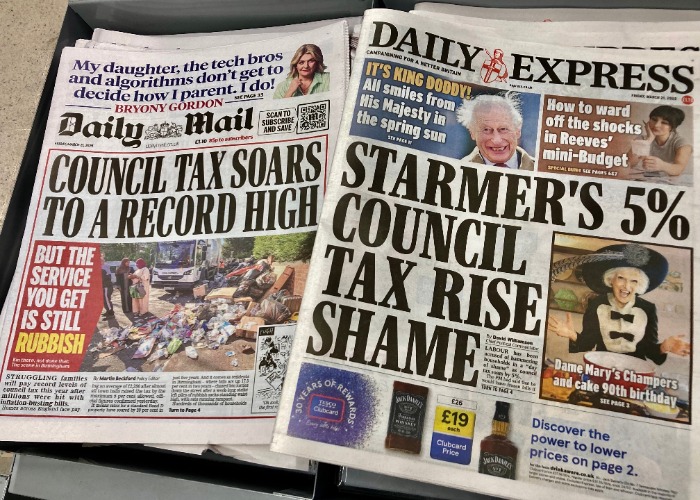Opinion: incorrect bands, bankrupt Local Authorities & more reasons Council Tax is broken

From the uneven way bill hikes are implemented to the fact that wealthier people are often charged less, Katy Ward highlights some of the key problems with Council Tax.
As regular readers will know, we at loveMONEY are highly critical of the Council Tax system.
With bills rising faster than most households' incomes, debts are soaring while vital services are simultaneously being stripped back.
Something needs to change.
From the uneven way bill hikes are implemented to the fact that wealthier people are often charged less, I'll highlight five of my key criticisms of the current system.
Bands haven’t changed since the 1990s
Shockingly, the amount you pay for your Council Tax still rests on a judgement made more than three decades ago.
When Council Tax replaced the old rates system in the early nineties, every property was placed in a valuation band according to its rental value.
In England and Scotland, the bands range from A to H, with A being the least expensive, and are based on valuations made in 1991.
In Wales, the bands range from A-I, with A again being the cheapest and are based on assessments from April 2003.
This means that hundreds of thousands of properties are likely in the wrong band and the residents could be overpaying on their bill.
Reassuringly, a recent investigation found that 99.6% of people who challenge their banding either see their bill fall or remain the same.
You can learn more about how to challenge your banding in this article.
We don’t always get value for money
Council Tax is meant to cover services such as rubbish and waste collection, transport, road maintenance, street lighting, libraries and recreation centres.
However, in many parts of the country, these services are simply not up to scratch.
Let’s take road maintenance as an example.
The RAC estimates that there are at least a million potholes in the UK, although the actual number will vary depending on the season
And frustratingly for motorists, these potholes can cause hundreds of pounds worth of damage to a car.
For many of us, it’s hard not to feel like we’re getting ripped off when we’re paying for something that doesn’t deliver.
Bankrupt councils can charge more
Under current rules, there will need to be a referendum if a Local Authority wishes to increase Council Tax rates by more than 5% per year.
Cynically, you could argue this is the reason most councils up their rates by 4.99% every April.
However, there are exceptions. If a council has effectively been declared bankrupt, the Government can give special exemption for a higher increase.
And this practice is becoming worryingly common, with a record number of authorities launching such a request for the 2025/26 year.
This is spectacularly painful for residents of these communities.
Already cash-strapped people shouldn’t face higher bills because their Local Authority is unable to balance the books.
Opinion: Council Tax mess is unsustainable
Millionaires can pay less than the average person
In 2024, the Guardian published an article asking whether it was time to abandon the tax in which it cited the example of residents living near Battersea power station.
Three decades ago, when Council Tax bands were set, the region only had a smattering of homes, which were set in a polluted area of the Thames and surrounded by abandoned factories.
But the area is now home to £8-million flats, which are among the most expensive properties in London.
Nevertheless, the current system means that the area’s multimillionaire inhabitants are paying less than the typical households in Nottingham, Blackpool or Stoke-on-Trent.
As The Guardian pointed out, Wandsworth council, which covers Battersea, charges around £2,000 per year for homes in Band H, which is the most expensive band.
In contrast, residents in a Band D property (deemed to represent an average-value home) in Hartlepool face a bill of £2,377.61.
Again, these quirks are simply unfair for ordinary households.
Central Government is little help
Although it would be easy to blame councils entirely for this mess, the reality is more complicated.
With the funding councils receive from central Government plummeting in recent years, Local Authorities are forced to survive on less and less each year.
In other words, it’s hardly a surprise that standards are falling off a cliff and councils are going broke.
8 ways the General Election could affect your finances
Where to get help
If you’re struggling with the cost of your Council Tax, there are organisations that can help.
These include:
Comments
Be the first to comment
Do you want to comment on this article? You need to be signed in for this feature